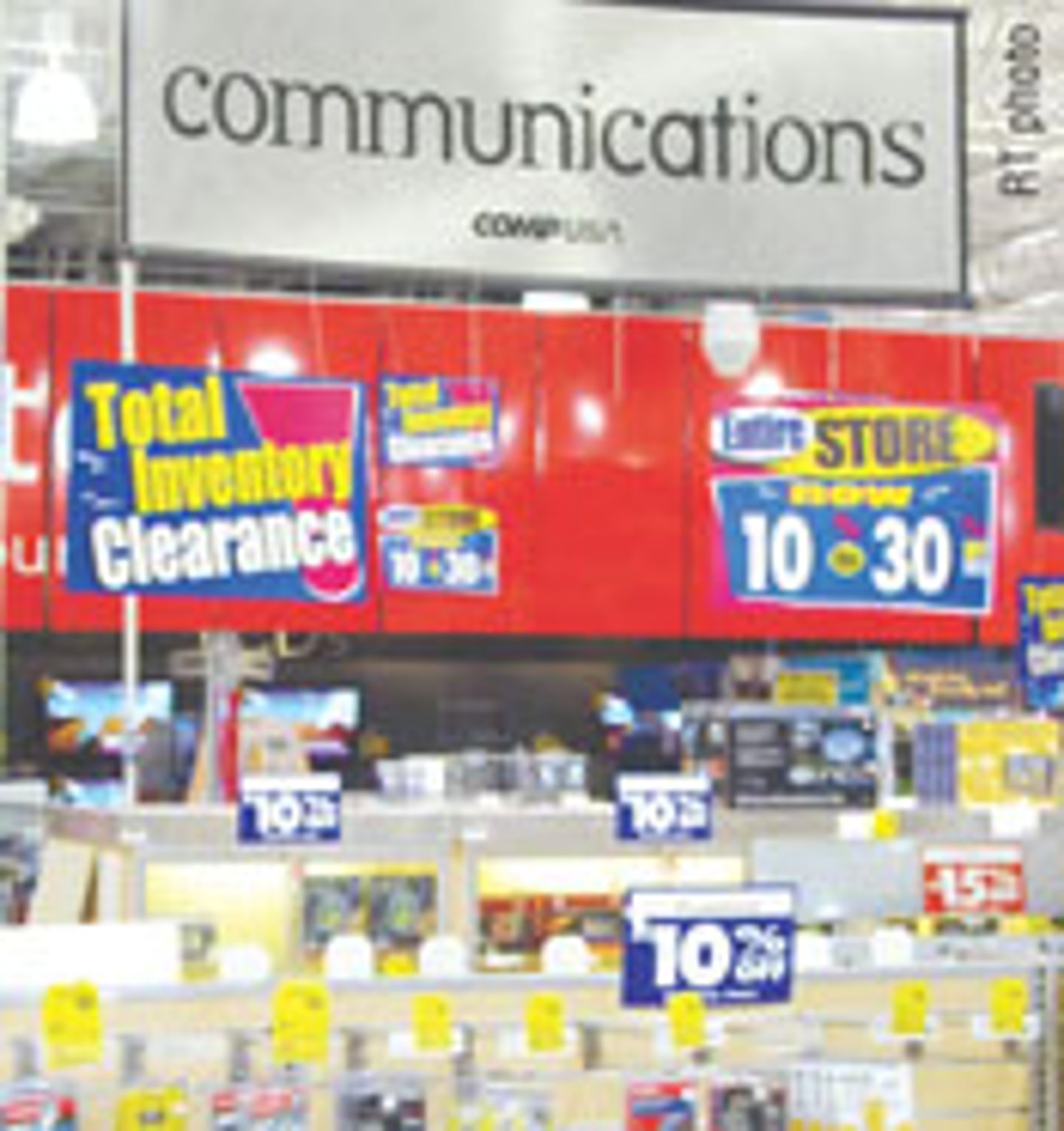CompUSA shutting off the power for good
DALLAS —The timing of CompUSA’s demise is ironic, given the fact computer sales rebounded during the holidays. But the shuttering of one of the last mid-sized consumer electronics chains in the country reflects changes in the business and shows that, above all else, size really matters.
When news surfaced in December 2007 that CompUSA was shutting down its remaining 103 stores, it wasn’t a surprise to industry analysts who believed the chain was just overmatched by larger CE rivals and mass merchants who undercut it on price and selection. “Product commoditization in CE retail is fierce, and that’s especially true with PCs,” said Andy Hargreaves, a CE analyst with Pacific Crest Securities. “And as a small guy without a lot of buying power, there was just no way for CompUSA to compete.”
The chain had been struggling to find a niche in the market for years after its heyday in the 1980s and 1990s, when it was the premier destination for home computers. As computer sales slowed and margins shrunk, CompUSA diversified and tried to adapt by bringing in TVs, home entertainment systems and digital cameras. “They’ve been trying to figure out what they are for a long time now and they just couldn’t make it work,” said George Whalin, president of Retail Management Consultants. “And I’m a little surprised that Carlos Slim didn’t invest more time and effort into making some bigger changes.”
Part of that problem during the tenure of Slim, who bought the chain in 2000 for $800 million, was turnover. CompUSA went through several ceos since 2000, including Hal Compton, Larry Mondry and Tony Weiss, and none remained long enough to make significant changes.
Analysts say the die was cast for CompUSA in March, when it closed 126 of its stores in a desperate attempt to cut costs and restructure. At the time, CE analyst Van Baker noted that he was “hard-pressed to see how they’re going to be viable by decreasing their size by 50%.”
Founded in 1984, CompUSA flourished during the 1980s when computer sales boomed, and went public in 1991. It achieved critical mass in 1998 when it purchased Tandy’s Computer City, and went private in 2000 when the chain was bought by Slim.
The buyout marked the start of a slow decline for CompUSA as it struggled to find its role in a changing marketplace. The situation got worse in 2003 when Wal-Mart made a big push into CE and forced specialists like Best Buy and Circuit City to lower prices.
But CompUSA did try to adapt. It bought struggling West Coast chain The Good Guys in 2003 in the hopes of creating a new store model that merged the strengths of both chains. But it was forced to shutter Good Guys in 2005 under pressure from the same market forces that would eventually drive it out of business.
Clearance sales have been under way at CompUSA since mid-December. In a statement, CompUSA’s new owners The Gordon Bros. Group noted that “active discussions are under way to sell stores in key markets,” and said the shutdown “was the best option for CompUSA and its creditors at this juncture.” Current ceo Roman Ross is staying with the company in an advisory role during the closings and Bill Weinstein of Gordon Bros. is serving as interim president.
The one upside to the shutdown is that it will drive business to other retailers. In a research note, Goldman Sachs analyst Matthew Fassler estimates closing of CompUSA will free up $1.8 billion in business for other retailers like Circuit City and Best Buy. The closings may also help struggling Tweeter Home Entertainment, the Massachusetts-based chain that closed one-third of its stores and filed for Chapter 11 bankruptcy this summer.

